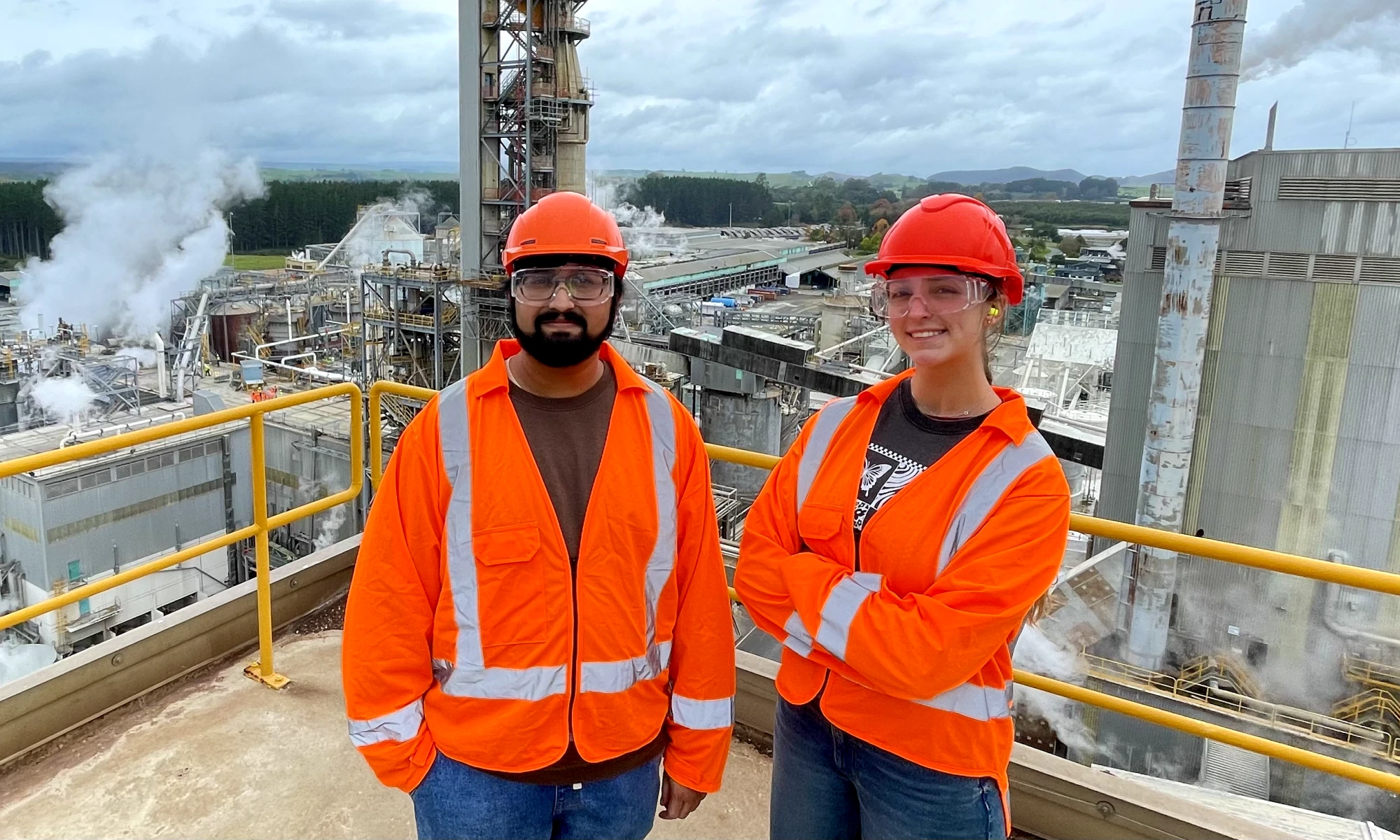Chemical and Process Engineering

Why study Chemical and Process Engineering?
By studying chemical and process engineering, you will learn a holistic approach to problem solving and gain essential skills for tackling global sustainability challenges in food, energy, water and waste.
Chemical and process engineers seek to harness fundamental chemical reactions and physical phenomena to develop, optimise and control large-scale production and manufacturing processes. We lead the way in a wide range of New Zealand’s largest and most essential industries, such as dairy and meat, food and beverage, pulp and paper, chemical and petrochemical, energy, bioproducts and bioenergy, and pharmaceutical.
Through our programme, you will learn how to manipulate driving-forces inherent with pressure, temperature and concentration differences, combined with the laws of thermodynamics, to create innovative and sustainable process design solutions. Our holistic focus on the molecular through to the macro scale equips you with highly transferable skills to work across many industries from banking to boardrooms, not just in processing factories and engineering consultancies.
The programme includes electives from first to fourth year. By taking electives with a common theme, you can further specialise in one of:
- AI & Digitalisation
- Biochemistry & Food
- Chemistry
- Energy
- Health & Genetics
- Materials & Mechanics
- Microbiology & Food
- Water & the Environment
The Chemical and Process Engineering programme is fully accredited by Engineering New Zealand based on the widely accepted Washington Accord, meaning your degree is internationally recognised and you can work just about anywhere in the world. As a student, you can join the global Institution of Chemical Engineers (IChemE) as a student member and progress towards chartership after graduation.
Watch the short video to learn about the role of chemical engineers in society.

Career Opportunities
- Biochemical Engineer
- Bioprocess Engineer
- Chemical engineer
- Environmental Engineer
- Food Processing Engineer
- Process Control Engineer
- Process Design Engineer
- Process engineer
- Production Engineer
Hamilton
Study Chemical and Process Engineering in these qualifications
Accreditation
The Chemical and Process Engineering programme is fully accredited under the Washington Accord.
Practical experience
Work placements are a major feature of the Chemical & Process Engineering programme and you will complete 800 hours of relevant work experience during your degree.
Our Work-Integrated Learning team actively seeks and oversees your work placement, ensuring a good fit for your area of study and career goals, and supporting you throughout your work experience.
By the time you graduate you will have the credibility of paid experience to take with you as you start your career.
Scholarships and prizes
Visit our Scholarship Finder for information about possible scholarships.